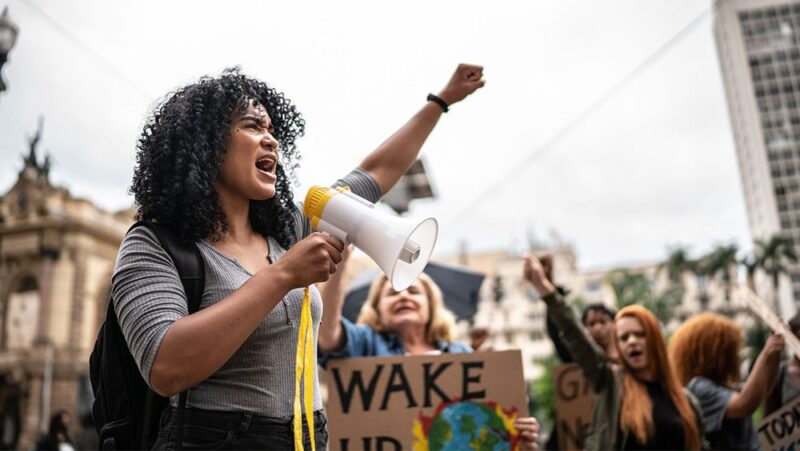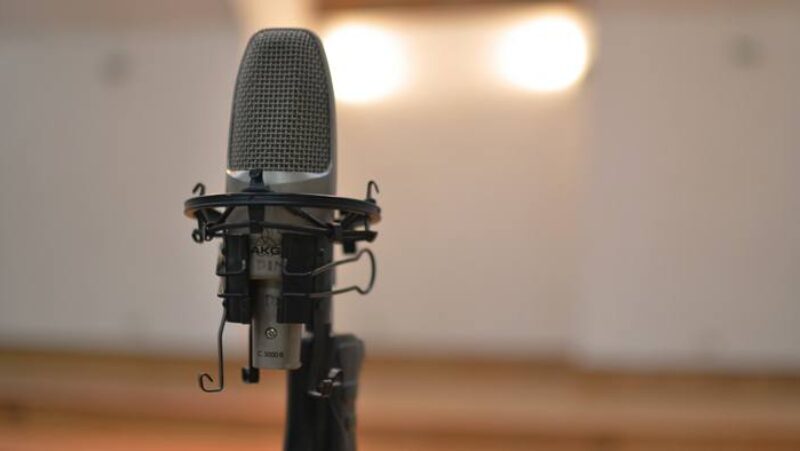How A Famed Author Of Children’s Literature Is Facing The Book Banning Trend

The Tulsa race massacre of 1921 was perhaps one of the worst incidents of racial violence in American history, but many Americans do not know much about it. Carole Boston Weatherford wanted to change that. A renowned African American author of children’s literature, she’d written books about race and segregation, among many other topics. So, it was natural that in 2021, for the 100th anniversary of the event, Weatherford decided to write a book about the massacre. Little did she know that by doing so, she might run into the book banning trend that has swept the nation.
The Tulsa massacre occurred between May 31 and June 1, 1921, when white citizens looted and burned homes and offices of Black citizens in Tulsa, Oklahoma’s prosperous residential area known as the “Black Wall Street.” The massacre erupted when rumors spread that a 19-year-old Black boy assaulted a 17-year-old white girl. Historians estimate that as many as 300 people died, and 15,000 Black people became homeless.
To mark the centennial anniversary, Weatherford wrote “Unspeakable: The Tulsa Race Massacre” for children ages 8 to 12.
“I wanted to show kids where racial hatred can lead,” Weatherford said in an interview with Freedom Forum. “Sometimes it can lead to violence against one person, and other times it can lead to violence against an entire community. I wanted to show them why it's important to love one another and to not fall into the trap of wanting to feel like you're better than somebody else, especially not based on the color of your skin and physical features.”
She won a coveted Caldecott Honor and Coretta Scott King Award for the book. It was also acclaimed by the American Library Association. Thus far the publisher, the Lerner Publishing Group, has sold more than 70,000 copies.
As her book was selling and earning acclaim, another phenomenon grew: the book banning wave.
Between July 2021 to June 2022, PEN America identified 2,532 instances of books being banned in 138 school districts in 32 states over the 2021-2022 school year. “Students have First Amendment rights to access information and ideas in schools, and these bans and legislative shifts pose clear threats to those rights,” PEN America stated. Legislators, school boards and parents lobbied to keep school children from exposure to books that would make them uncomfortable or to feel that they were responsible for racial division.
To the concern that students might feel uncomfortable reading race-related books like hers, Weatherford said, “It's so ironic that that would be a concern because for many years, African American children were made to feel uncomfortable when we were in separate but equal schools. We were in substandard classrooms and had to sit crammed on a bench because we didn't have enough desks. That's physical discomfort. “
Despite the trend, Weatherford continued her work. “It was never on my radar at all,” she said. “I had written other books about slavery, so I did not view it as problematic at the time. And I didn't necessarily think that the book was going to be everywhere either, because I know that when you write about so-called difficult subjects, some people are not going to buy them. Grandmothers may rather purchase a book about a teddy bear. I didn't necessarily think it was going to be a bestseller, but I didn't think it was going to be on banned book lists either.”
Weatherford said she began hearing that teachers might be wary about having students read her Tulsa book and other related books, especially when parents and even students have been deputized to report to school boards about controversial books.
“Teachers are concerned, and they're overburdened,” Weatherford said. “This is yet one more thing that they've got to contend with when all they want to do is teach kids to read.”
As the school year started, the book hadn't been specifically challenged to Weatherford's knowledge. But a few weeks later, things changed. In September, a K-12 school in San Antonio excluded Weatherford’s book from a list of finalists for the Texas Bluebonnet Award, which is part of the Texas Book Festival. The Nowhere Bookshop in San Antonio offered two copies of the books to the school library, but they were declined.
The bookshop kept donating up to 250 copies of the books to local school districts. “This picture book tells the history of the Black community of Greenwood and the 1921 Tulsa Massacre,” the store stated. “We believe elementary students here in San Antonio need access to this important work, and we'd like to see this book in as many elementary school classrooms as possible.”
This story is part of a larger and growing trend that’s disturbing some lawmakers.
“The wave of book bans that has swept across our country in recent years is a direct attack on First Amendment rights and should alarm every American who believes that freedom of expression is a fundamental pillar of our democracy,” said U.S. Rep. Jamie Raskin, chairman of the House Oversight and Reform Committee’s Subcommittee on Civil Rights and Civil Liberties. Raskin, along with Sen. Brian Schatz, introduced a resolution during Banned Books Week in September condemning attacks on books and freedom of expression. “During this Banned Books Week, we must call attention to these threats to freedom of expression, reaffirm our commitment to protect First Amendment rights, and, most importantly, read banned books.”
In the meantime, asked if she plans to continue writing books like “Unspeakable,” Weatherford said, “I'm going to write what I'm going to write because my mission as an author is to mine the past for family stories, fading traditions, and forgotten struggles, that document African American resistance, resilience, remembrance and remarkability. That's my mission, and I'm sticking to it.”
Tony Mauro is a fellow for the First Amendment at the Freedom Forum. He has covered the U.S. Supreme Court since 1979 including for the National Law Journal and ALM Media Supreme Court Brief.
Free Speech on College Campuses: The Ultimate Guide
C-SPAN and the Supreme Court’s Big Step Toward Live Broadcast of Arguments
Related Content
$30,000 Giving Challenge
Support the Freedom Forum’s First Amendment mission by Dec 31st and double your impact.

